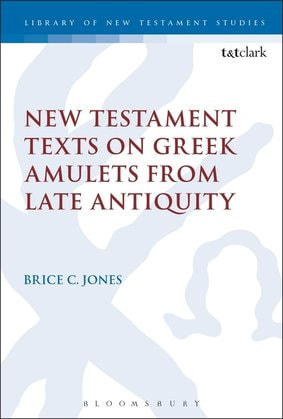 I would like to congratulate my colleague, mentor, and friend Dr. David L. Eastman, Associate Professor of Religion at Ohio Wesleyan University, on the publication of his new monograph, The Ancient Martyrdom Accounts of Peter and Paul (WGRW 39; Atlanta: SBL Press, 2015). Here is the abstract: "Eastman brings together for the first time all the various ancient accounts of the martydoms of Peter and Paul and more than forty references to the martyrdoms from early Christian literature. At last a more complete picture of the traditions about the deaths of Peter and Paul is able to emerge. Features:
I welcome this new addition and look forward to using it over the years to come! If you would like to buy a copy, you can purchase it from Amazon or the SBL Press.
0 Comments
In the late nineteenth and early twentieth centuries, the rubbish dumps of Oxyrhynchus yielded thousands upon thousands of papyrus manuscript fragments that have provided—and continue to provide—a tremendous source of knowledge about the ancient world. But what some people may not realize is the fact that several parchment fragments were also among the finds at Oxyrhynchus. Since parchment was considerably more expensive than papyrus, we can understand why there is almost no extant evidence at Oxyrhynchus of parchment being used for everyday kinds of documents (there are only a few exceptions, such as P.Iand. 2.12 and SB 3.7269). So, the parchment fragments we do find at Oxyrhynchus are primarily literary or sub-literary in genre. And most of these fragments date from the fourth century and later, since parchment, as far as we can tell, did not come to be used with much regularity until the fourth century. In any case, here is a small sample of some interesting parchment fragments discovered at Oxyrhynchus. PSI 3.251 (NA 0176; LDAB 3032) This is a fifth century Greek parchment fragment containing portions of Galatians 3. This is a beautiful specimen in terms of the quality of the parchment and the elegance of its script. It once belonged to a beautiful miniature codex, perhaps containing the entire New Testament. Notice the wide spacing in between letters, the lining of the parchment, and the positioning of the letter π into the left margin in the right image (a phenomenon known as “ekthesis”). P.Oxy. 5.840 (LDAB 5831) [From Wikipedia]: “Oxyrhynchus 840 (P. Oxy. V 840), found in 1905, is a single small vellum parchment leaf with 45 lines of text written on both sides in a tiny neat hand that dates it to the 4th century, almost square, less than 10 cm across. It is kept at the Bodleian Library, MS. Gr. th. g. 11 (P).” There is a question about what kind of text this is and how was it used (apocryphal gospel, amulet, miniature codex). Nonetheless, it offers interesting and otherwise unattested sayings of Jesus, who is called “Savior” in the manuscript. An English translation may be found here. P.Oxy. 8.1080 (NA 0169; LDAB 2793) This is a fourth century Greek parchment fragment containing the text of Revelation 3:19-4:3. It is written on both sides in a nice literary hand, and features nomina sacra, pagination (“33 and 34”), and scribal corrections. Interestingly, like P.Oxy. 5.840 above, this is also considered to be a miniature codex, which is traditionally defined as a codex whose width is less than 10cm (more on miniature codices here). P.Oxy. 8.1077 (LDAB 2959) Written on an oblong piece of parchment, this sixth-seventh century Greek amulet contains writing in the shape of crosses, surrounded by a human figure drawn in the center. It begins with the title, “Curative gospel according to Matthew,” which precedes a citation of Matt 4:23-24—a narrative summary that depicts Jesus as a healer of every illness and infirmity. I subjected this amulet, the drawing, and its biblical text to an analysis in my doctoral dissertation. (Question: Do you think the figure in the middle is a man or a woman?) P.Oxy. 7.1007 (LDAB 3113)
Dating to the third century, this is the earliest parchment of the bunch. It is a codex fragment of the Septuagint written in two columns, and contains portions of Genesis 2 and 3. Probably the most interesting feature of this fragment is that it contains the normal Christian abbreviation (nomen sacrum) of θεός, but the word κύριος (=the Tetragrammaton) is abbreviated with double Hebrew yods in the shape of a Z (not pictured below)! This is remarkable because this was a distinctively Jewish scribal phenomonen! Thus, scholars cannot decide whether this is a Jewish or Christian copy of Genesis, since the abbreviation of θεός (with contraction and overlining) was disctinvely Christian, and the abbreviation of κύριος (with double yods) was distinctively Jewish. |
Archives
December 2020
Categories
All
|






